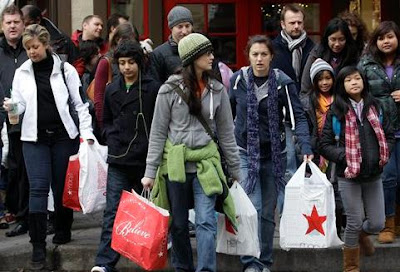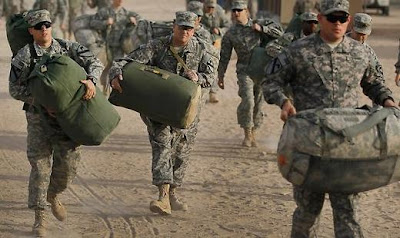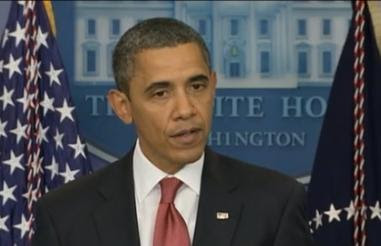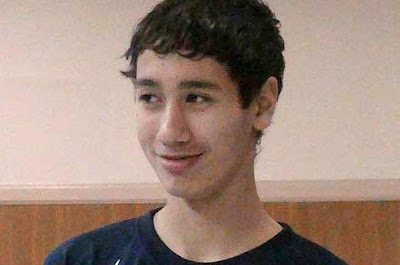 |
| Newt Gingrich |
(Reuters) - Republican presidential candidate Newt Gingrich angrily defended himself on Thursday against allegations that he had asked his ex-wife for an open marriage, lashing out in perhaps the most crucial debate yet in the 2012 campaign.
The CNN-sponsored debate got off to a raucous start when moderator John King asked Gingrich to respond to charges put forth by his ex-wife Marianne that he had sought an "open marriage" while having an affair.
The impropriety charges have dogged Gingrich for years and threaten to slow his momentum in South Carolina as he seeks to upset front-runner Mitt Romney in the first primary vote in the South on Saturday.
"I think the disruptive, vicious, negative nature of the news media makes it harder to govern this country," Gingrich fumed. "I am appalled that you would begin a presidential debate on a topic like that."
The Republican crowd roared its approval of Gingrich.
The was the final chance for rivals to chip away at Romney's lead in South Carolina and Gingrich, the former speaker of the U.S. House of Representatives, had perhaps the best shot.
Romney came into the debate under strong pressure to turn back Gingrich, who received the endorsement of Texas Governor Rick Perry who dropped out of the race early Thursday.
Romney, a former private equity executive, insisted the company for whom he worked did in fact help create more than 100,000 jobs despite doubts about that expressed by experts.
Romney's experience at Bain Capital, which bought companies and restructured them sometimes resulting in job losses, has hurt him in South Carolina where unemployment remains around 10 percent. Gingrich lobs frequent attacks at him on this.
Romney said Bain helped nurture companies that created 120,000 jobs while business failures cost about 10,000 jobs for a net increase of 100,000.
"People have evaluated that since I ran four years ago," said Romney, who lost the Republican presidential race in 2008 to Senator John McCain.
Romney will take a huge step toward claiming the Republican nomination if he wins on Saturday.
Fighting for their political lives at the debate were former Pennsylvania Senator Rick Santorum and libertarian Congressman Ron Paul of Texas.
GINGRICH GETS CLOSER
A strong performance in a debate in South Carolina on Monday helped him get within touching distance in the polls of Romney, who has struggled to explain why he has not released his tax forms.
But Gingrich has faced troubling questions that could halt his momentum. His second wife, Marianne, told ABC News that Gingrich had sought an open marriage while having an affair with current wife Callista. She said he should not be considered electable in the race to find a Republican challenger to Democratic President Barack Obama in next November's election.
A new Reuters/Ipsos poll conducted of 656 likely South Carolina voters showed Romney with 35 percent support, Gingrich with 23 percent support, and former Senator Rick Santorum with 15 percent support.
Romney was looking for a rebound to boost his momentum after the surprise news from Iowa on Thursday that he did not receive the eight-vote victory that he had believed on January 3.
A formal count by Iowa election officials gave the nod to Santorum by a mere 34 votes, puncturing the aura of inevitability that Romney's campaign has sought to portray.
Santorum went on the attack on Thursday night against Romney and Gingrich over healthcare. He attacked Romney's healthcare plan in Massachusetts that Democrats say was a model for Obama's unpopular overhaul, and Gingrich for prior support for a provision that individuals be required to buy health insurance.
The CNN-sponsored debate got off to a raucous start when moderator John King asked Gingrich to respond to charges put forth by his ex-wife Marianne that he had sought an "open marriage" while having an affair.
The impropriety charges have dogged Gingrich for years and threaten to slow his momentum in South Carolina as he seeks to upset front-runner Mitt Romney in the first primary vote in the South on Saturday.
"I think the disruptive, vicious, negative nature of the news media makes it harder to govern this country," Gingrich fumed. "I am appalled that you would begin a presidential debate on a topic like that."
The Republican crowd roared its approval of Gingrich.
The was the final chance for rivals to chip away at Romney's lead in South Carolina and Gingrich, the former speaker of the U.S. House of Representatives, had perhaps the best shot.
Romney came into the debate under strong pressure to turn back Gingrich, who received the endorsement of Texas Governor Rick Perry who dropped out of the race early Thursday.
Romney, a former private equity executive, insisted the company for whom he worked did in fact help create more than 100,000 jobs despite doubts about that expressed by experts.
Romney's experience at Bain Capital, which bought companies and restructured them sometimes resulting in job losses, has hurt him in South Carolina where unemployment remains around 10 percent. Gingrich lobs frequent attacks at him on this.
Romney said Bain helped nurture companies that created 120,000 jobs while business failures cost about 10,000 jobs for a net increase of 100,000.
"People have evaluated that since I ran four years ago," said Romney, who lost the Republican presidential race in 2008 to Senator John McCain.
Romney will take a huge step toward claiming the Republican nomination if he wins on Saturday.
Fighting for their political lives at the debate were former Pennsylvania Senator Rick Santorum and libertarian Congressman Ron Paul of Texas.
GINGRICH GETS CLOSER
A strong performance in a debate in South Carolina on Monday helped him get within touching distance in the polls of Romney, who has struggled to explain why he has not released his tax forms.
But Gingrich has faced troubling questions that could halt his momentum. His second wife, Marianne, told ABC News that Gingrich had sought an open marriage while having an affair with current wife Callista. She said he should not be considered electable in the race to find a Republican challenger to Democratic President Barack Obama in next November's election.
A new Reuters/Ipsos poll conducted of 656 likely South Carolina voters showed Romney with 35 percent support, Gingrich with 23 percent support, and former Senator Rick Santorum with 15 percent support.
Romney was looking for a rebound to boost his momentum after the surprise news from Iowa on Thursday that he did not receive the eight-vote victory that he had believed on January 3.
A formal count by Iowa election officials gave the nod to Santorum by a mere 34 votes, puncturing the aura of inevitability that Romney's campaign has sought to portray.
Santorum went on the attack on Thursday night against Romney and Gingrich over healthcare. He attacked Romney's healthcare plan in Massachusetts that Democrats say was a model for Obama's unpopular overhaul, and Gingrich for prior support for a provision that individuals be required to buy health insurance.
Read current news at http://bbc-cnn-worldnews.blogspot.com
















